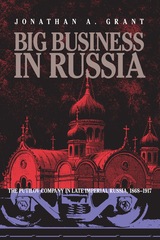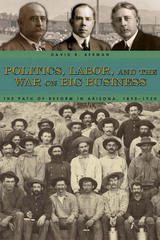
In the past decade remarkable changes have taken place in the relations between big business and government in Western Europe. Large corporations have always been intimately linked to their governments—sometimes carrying out national policies, frequently influencing those policies. Recently, however, more and more national enterprises have become multinational enterprises whose aims diverge increasingly from those of the states in which they originated. In addition, the growth of the European Economic Community has outdated customary ways of doing business for large corporations while creating new opportunities for them.
A number of significant insights and interpretations result from this timely book. The interests of the big firms of Western Europe are becoming increasingly worldwide and less concerned with Europe; inter-European collaboration among them has been largely disappointing in furthering European goals; emphasis on creativity and innovation in big business has given way to the diversion of financial resources to declining industries; and lip service to promoting transnational collaboration notwithstanding, governments have preferred to back national standard bearers in key industries. No less important, the political role of large economic groups has been enhanced and that of parliament weakened or altogether circumvented.

This is the first major study in Chinese business history based largely on business's own records. It focuses on the battle for the cigarette market in early twentieth-century China between the British-American Tobacco Company, based in New York and London, and its leading Chinese rival, Nanyang Brothers Tobacco Company, whose headquarters were in Hong Kong and Shanghai.
From its founding in 1902, the British-American Tobacco Company maintained a lucrative monopoly of the market until 1915, when Nanyang entered China and extended tis operations into the country's major markets despite the use of aggressive tactics against it. Both companies grew rapidly during the 1920s, and competition between them reached its peak, but by 1930 Nanyang weakened, bringing an end to serious commercial rivalry. Though less competitive, both companies continued to trade in China until their Sino-foreign rivalry ended altogether with the founding of the People's Republic in 1949.
Debate over international commercial rivalries has often been conducted broadly in terms of imperialist exploitation and economic nationalism. This study shows the usefulness and limitations of these terms for historical purposes and contributes to the separate but related debate over the significance of entrepreneurial innovation in Chinese economic history. By analyzing the foreign Chinese companies' business practices and by describing their involvement in diplomatic incidents, boycotts, strikes, student protests, relations with peasant tobacco growers, dealings with the Kuomintang and Chinese Communist Party, and a host of other activities, the author brings to light the roles that big businesses played not only in China's economy but also in its politics, society, and foreign affairs.

Grant has gone beyond Soviet works on the Putilov plant, examining archival documents of the company and offering critical comments on both Soviet and Western scholarship on Russian economic and social history from the perspective of this important industrial enterprise. Grant not only repeatedly demonstrates that the Putilov firm responded effectively to the changing market for its wide range of industrial products but also shows that the tsarist regime provided far more of the "systemic regularity" needed for capitalist development than generally believed. Grant's work is a significant contribution to this ongoing debate, offering a much-needed case study of Russian business history and a comparative study that extends across national boundaries. Big Business in Russia is essential reading for graduate students in Russian and European history and will also appeal to American and European business leaders eager to understand the historical background of the current economic challenges facing Russia.

Public trust in corporations plummeted in the wake of the 2008 financial crisis, when “Lehman Brothers” and “General Motors” became dirty words for many Americans. In Corporate Dreams, James Hoopes argues that Americans still place too much faith in corporations and, especially, in the idea of “values-based leadership” favored by most CEOs. The danger of corporations, he suggests, lies not just in their economic power, but also in how their confused and undemocratic values are infecting Americans’ visions of good governance.
Corporate Dreams proposes that Americans need to radically rethink their relationships with big business and the government. Rather than buying into the corporate notion of “values-based leadership,” we should view corporate leaders with the same healthy suspicion that our democratic political tradition teaches us to view our political leaders. Unfortunately, the trend is moving the other way. Corporate notions of leadership are invading our democratic political culture when it should be the reverse.
To diagnose the cause and find a cure for our toxic attachment to corporate models of leadership, Hoopes goes back to the root of the problem, offering a comprehensive history of corporate culture inAmerica, from the Great Depression to today’s Great Recession. Combining a historian’s careful eye with an insider’s perspective on the business world, this provocative volume tracks changes in government economic policy, changes in public attitudes toward big business, and changes in how corporate executives view themselves.
Whether examining the rise of Leadership Development programs or recounting JFK’s Pyrrhic victory over U.S. Steel, Hoopes tells a compelling story of how America lost its way, ceding authority to the policies and values of corporate culture. But he also shows us how it’s not too late to return to our democratic ideals—and that it’s not too late to restore the American dream.

In the 1890s, once-heavily courted corporations had become, in the eyes of many, outside "money interests" or "beasts" that exploited the wealth of the sparsely settled area. Arizona's anticorporate reformers condemned the giant corporations for mistreating workers, farmers, ranchers, and small-business people and for corrupting the political system. During a thirty-year struggle, Arizona reformers called for changes to ward off corporate control of the political system, increase corporate taxation and regulation, and protect and promote the interests of working people.
Led by George W.P. Hunt and progressive Democrats, Arizona's brand of Progressivism was heavily influenced by organized labor, third parties, and Socialist activists. As highly powerful railroad and mining corporations retaliated, conflict took place on both political levels and industrial backgrounds, sometimes in violent form.
Politics, Labor and the War on Big Business places Arizona's experience in the larger historical discussion of reform activity of the period, considering issues involving the role of government in the economy and the possibility of reform, topics highly relevant to current debates.
READERS
Browse our collection.
PUBLISHERS
See BiblioVault's publisher services.
STUDENT SERVICES
Files for college accessibility offices.
UChicago Accessibility Resources
home | accessibility | search | about | contact us
BiblioVault ® 2001 - 2024
The University of Chicago Press









